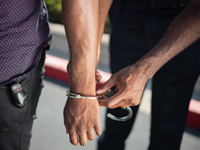DBS checks (which were formerly called CRB checks) play a crucial role in assessing an individual's suitability for certain roles. This sort of criminal record checks applies particularly to work involving vulnerable groups but might also apply to a wide range of other roles involving financial or legal responsibility. Most people are aware that having a criminal records check will reveal any convictions on their record. The confusion comes in around other information which the police might hold about you. Many people are arrested, questioned, and then released without charge. A record of that arrest will remain on the police national computer – but is this sort of thing disclosed on a records check?
Criminal Convictions
DBS checks on the whole are mainly focused on criminal convictions. Conviction means that either you were found guilty by a jury or magistrate, or that you admitted your guilt in court. Less serious matters are often dealt with in a different way by the police, who will issue a caution or formal warning rather than going through a whole trial or court case. These cautions or warnings are also treated in the same way as a conviction on disclosure certificates. After a certain period of time, your convictions and cautions will be considered spent, and in most situations will not need to be disclosed.
Arrests
Unlike convictions, arrests are not any indication of your innocence or guilt. Many people are arrested, questioned, and released without charge when it becomes obvious to the police that they have got the wrong person, or that no crime has been committed. Therefore, in most cases, arrests will not appear on a disclosure certificate as they do not prove someone’s character one way or another.
In some situations, details of arrests might appear on a DBS certificate. In the enhanced level of checking, the police may choose to disclose any other information which is held on the computer and which they think is relevant to the position under consideration. If someone has a long list of repeated arrests on their record, even if nothing has ever gone to court, then the police may decide that this should be disclosed. This ability was added to the DBS check system after the well-publicised case of Ian Huntley, a school caretaker who had never been convicted, but who had several serious sexual allegations made against him by several women.
Implications for DBS Checks
If you have been arrested in the past as a one-off, then it is very unlikely that any arrest will ever appear on the DBS certificate. Basic and standard DBS checks will not show this sort of information, and unless you have a long record of arrests, a single arrest will not appear on an enhanced disclosure. It is also important to remember that many other jobs will not require a DBS check at all, and you are under no obligation to disclose the fact you have been arrested at any stage of a recruitment process.





